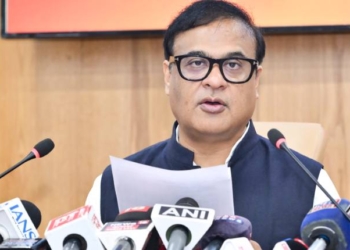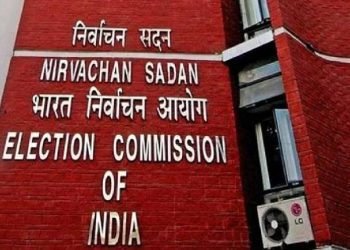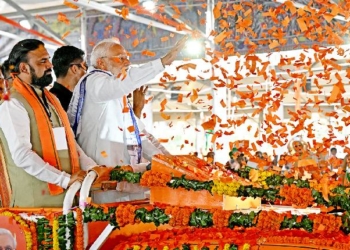New Delhi: A day after Congress leader Rahul Gandhi’s disqualification from Parliament, a petition has been moved in the Supreme Court challenging the validity of provisions mandating “blanket and automatic” disqualification of legislators upon conviction and sentence.
The plea, filed by advocate Deepak Prakash on behalf of Aabha Muralidharan, prayed that automatic disqualification under Section 8 (3) of the Representation of People Act (RPA), 1951, should be declared as ultra vires of the Constitution, for being arbitrary, illegal and violative of fundamental right to equality.
The petitioner, a social worker from Malappuram, sought a direction that automatic disqualification did not exist under Section 8 (3) of the RPA, while citing Gandhi’s disqualification as an MP on Friday by the Lok Sabha Secretariat.
The Secretariat issued a notification after he was convicted by a Surat court on March 23 and given a two year sentence, for his remarks as to “why all thieves had Modi surname” in a rally in 2019 in Kolar.
The plea argued that the mandate of Section 499 (defamation) of IPC or any other offence prescribing maximum punishment of two years will not automatically disqualify any sitting member of any legislative body.
It stressed that automatic disqualification violated the freedom of speech and expression of an elected representative.
The plea said: “The grounds for disqualification ought to be specific with the nature of offences as specified under the Code for Criminal Procedure and not in a blanket form, as is currently in force under Section 8(3) of the RP Act.”
The plea contended that interpretation provided by the apex court in Lily Thomas case (2013) requires re-examination, to the effect of adjudicating the provisions of disqualification under Chapter III of the 1951 Act.
“The operations of Lily Thomas case are being blatantly misused for wreaking personal vengeance against the political parties,” said the plea.
“If the offence under Section 499 and 500 of the IPC, which just technically has a maximum punishment of 2 years is not removed singularly from the sweeping effect of the judgement in Lily Thomas, it will have a chilling effect on the right of representation of the citizens.”
(IANS)















